Let’s take a rare visit into the South Korean Cheongwadae Blue House. It is the official residence of the President of South Korea, located in the heart of Seoul at the base of Mount Bukak. As one of the most iconic landmarks in the country, it has a rich history and cultural significance.
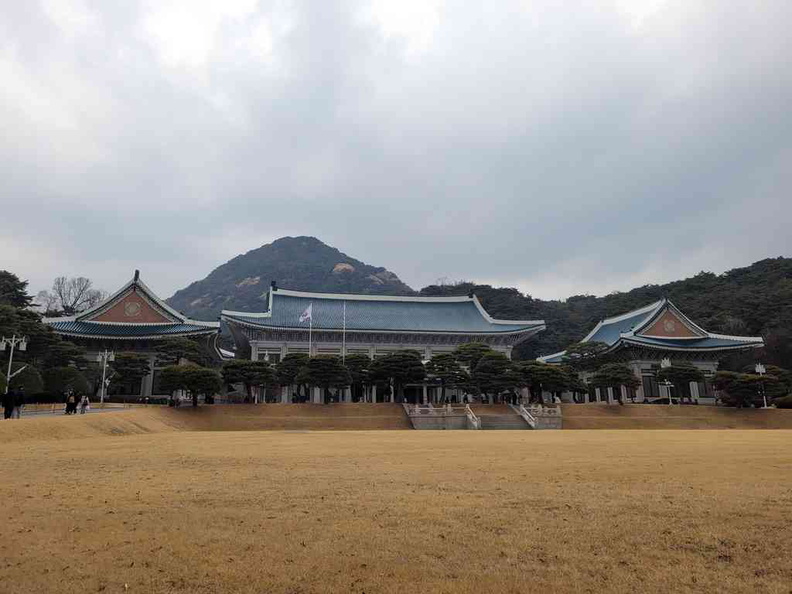
The opening of a new Era (and for visitors)
Blue house is the presidential office and residence of the south Korea. Previously, the Blue house is out of bounds to the public. However, since 2022, with the induction of Yoon Suk-Yeol as the current Korean President, a fresh epoch commences. Yoon is set to become the first Korean head of state to distance himself entirely from the Blue House. This is based on cost prudence and Cheongwadae being a venue for the people not exclusive to the President.
Hence, right from the outset, Yoon will operate from the Defense Ministry’s premises located in the Yongsan District, in central Seoul. With the South Korean president residing at his own residence, for the first time, the Blue house is opened for public viewing and visitation.
Entering as a Tourist
It is recommended to book a free entry slot in advance on their official booking website and arrive early to avoid queues. Visitors should also note that some areas of the complex may be restricted due to security or on-going events. Also, the grounds are able to take in 6000 daily visitors, with 500 reserved daily for tourists.
Tourist walk-ins are allowed, do come by mid-day
However, an interesting worth noting is that though their website recommends a 3 day pre-booking in advance to secure a slot, walk-ins are also allowed if there are still available slots. This be useful if you plan to visit at short noticed and as the website can’t let you book on dates 3 days in. Do look for the pink container booths at the entrance. Also, do bring your passport or ID as proof of a foreigner. After some verification as a tourist, the staff will issue you a wristband ticket to enter.
Also, on my visit, a check with the ticketing staff told me that the fixed entry timings of 9am and 1:30pm for tourists on their website is a guideline. The staff won’t restrict tourists’ entries only at those timings if slots are still available.
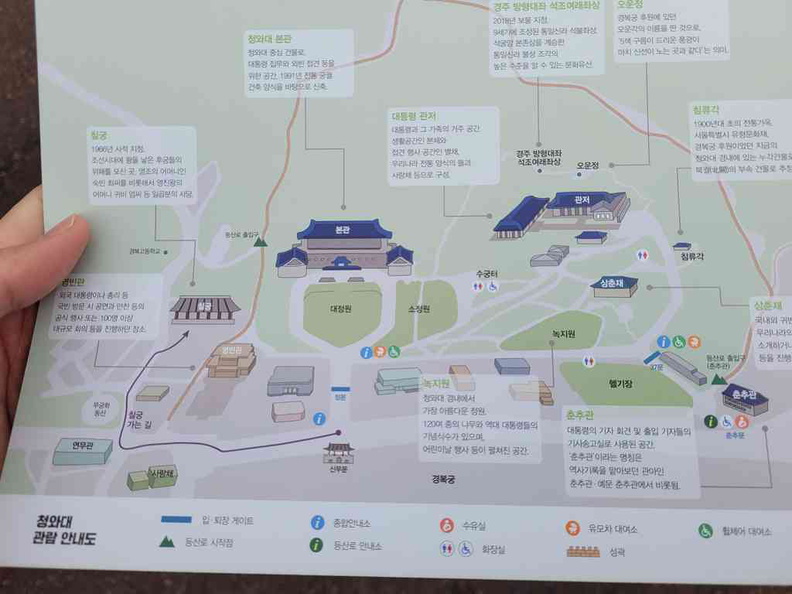
For the record, after my explorations of the Blue house, leaving the venue at 3pm, there were 50 remaining places left for the day, with 455 places were already given out since the day’s opening. Hence you should be good if you come by mid-day, you still be able to walk-in. Though I would recommend coming around noon to be on the safe side. And do remember to bring your passport!
Exploring the Blue House grounds
Furthermore, upon entering at the Blue House, visitors are greeted by the beautiful traditional Korean architecture that blends harmoniously with the surrounding nature. The complex is situated on top of a hill. It overlooks the bustling city below, surrounded by lush gardens and forests.
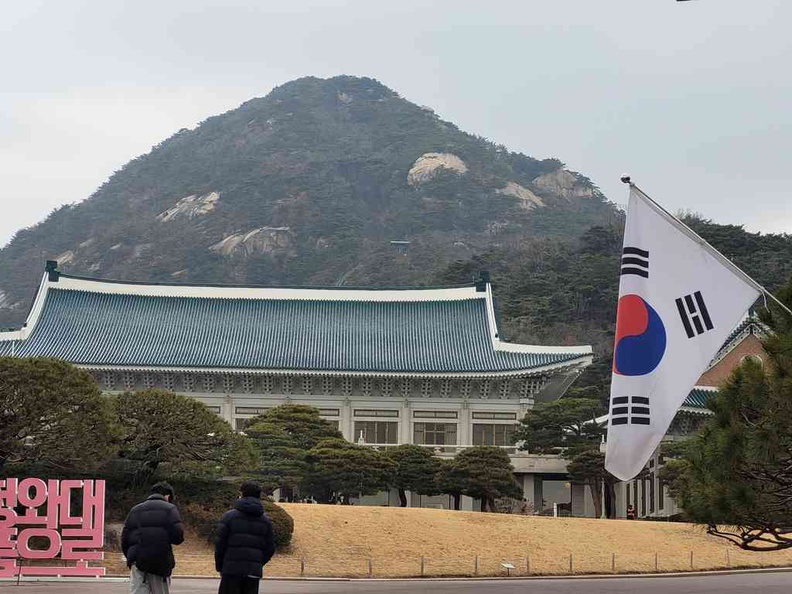
The Blue house compound comprises of 3 main separate buildings. The highlight item is entering the Blue house itself. The organization of the visit is tad like a visit to other modern non-castle-like presidential properties, like the Istana in Singapore for instance.
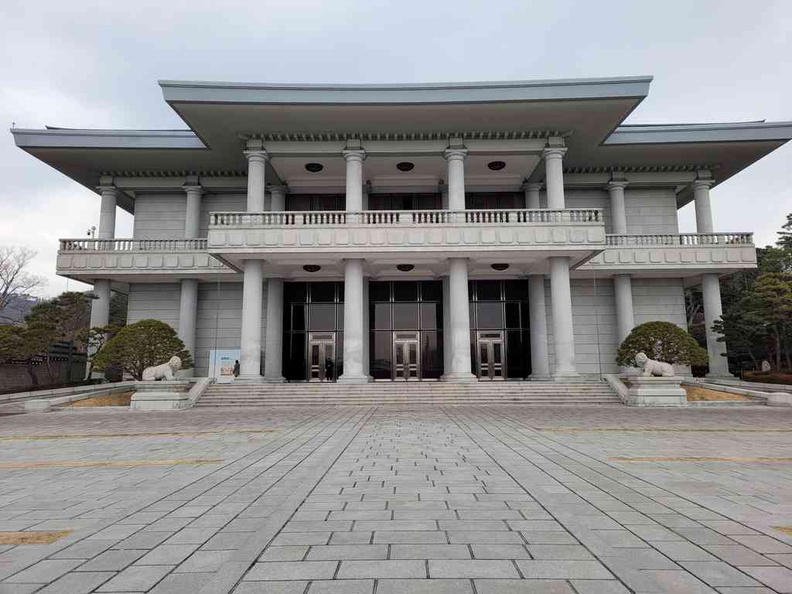
Also, the complex is a beautiful example of traditional Korean architecture, with a mix of houses, gardens and offices all sitting with Mount Bukak in the background. It does call for a picturesque view. First off is the Yongbingwan State guest house. Its own front gate decorated with the golden phoenixes overlooking the main road. The guest house where foreign dignitaries stay during official visits. During my visit the guest house was occupied with an event and not allowed to enter.
Inside the Blue House
The tour of the Cheongwadae Blue House takes visitors through various areas of the complex. This includes the main hall where the President conducts official meetings, the reception hall where important guests are welcomed.

The self-guided tour through the building provides a fascinating insight into the workings of the Korean presidency. Whether you are a history buff or simply looking for an interesting cultural experience.
Also, at each room, there is a Korean guide who will brief you on the significance of each room. Some of them can converse in English too. Do feel free to ask them questions and they be glad to answer you in their best of their abilities.
Vast lobby and spaces
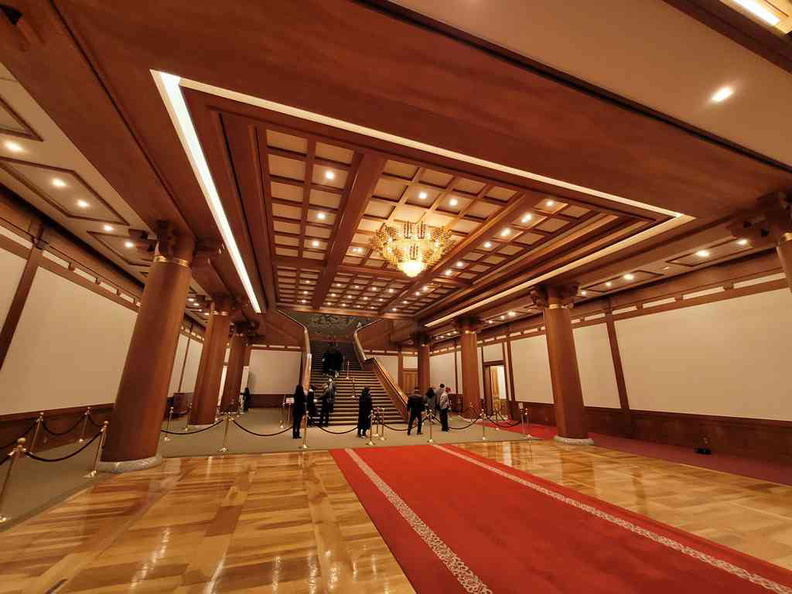
Moreover, past the front courtyard, a vast grand lobby interior greets you past the main double doors. You enter from the front door where you follow a linear route through several ground floor corridors and rooms housing past president portraits, followed by going past few reception rooms, a grand event space and dining areas. You make you way up to the second floor via the central grand staircase.
The upper floor of the blue house is home to meeting spaces and rooms for delegation to sit and meet the president. This is not after passing by a large art mural from the grand central staircase depicting the Korean peninsula.
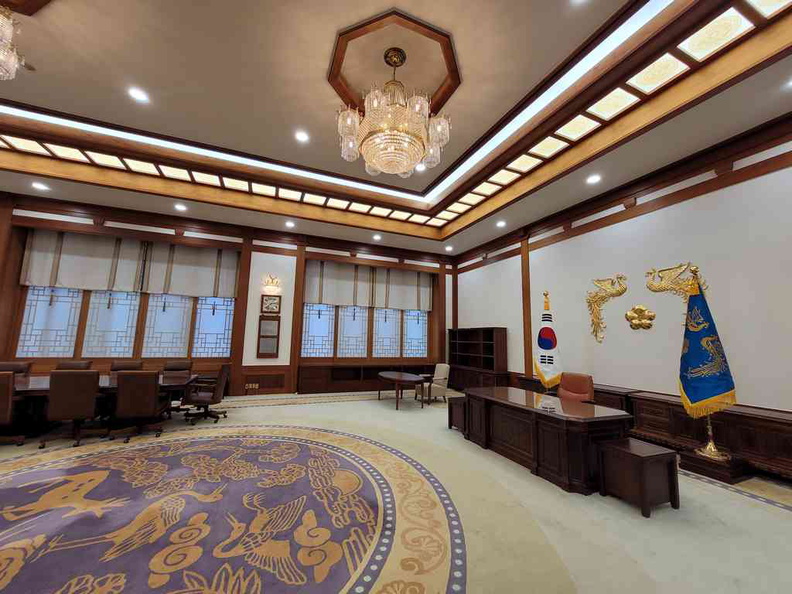
Additionally, an optional addition to your tour is the opportunity to see the famous Cheongwadae Sarangchae. It is a nearby museum that showcases the history of the Korean presidency and its cultural heritage. Here, visitors can learn about the lives of past presidents, view rare artifacts and documents, and experience traditional Korean culture through interactive exhibits.
Presidential gardens
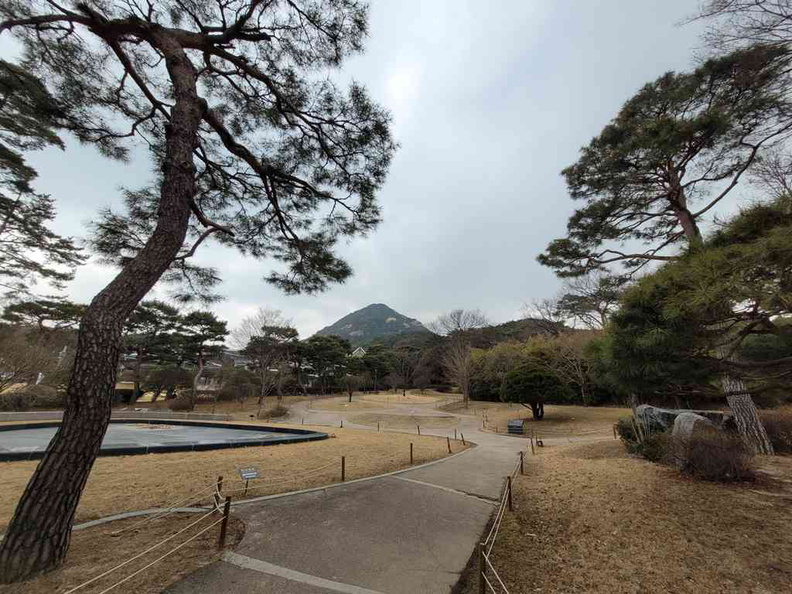
Moreover, beside the main Cheongwadae Blue House, you can also take an explore of adjacent buildings and a walk through the Nokjiwon garden where the Presidents office resides. The gardens have a small central pond surrounded by a hilly terrain. It is a small conducive refuge in the buzzing city.
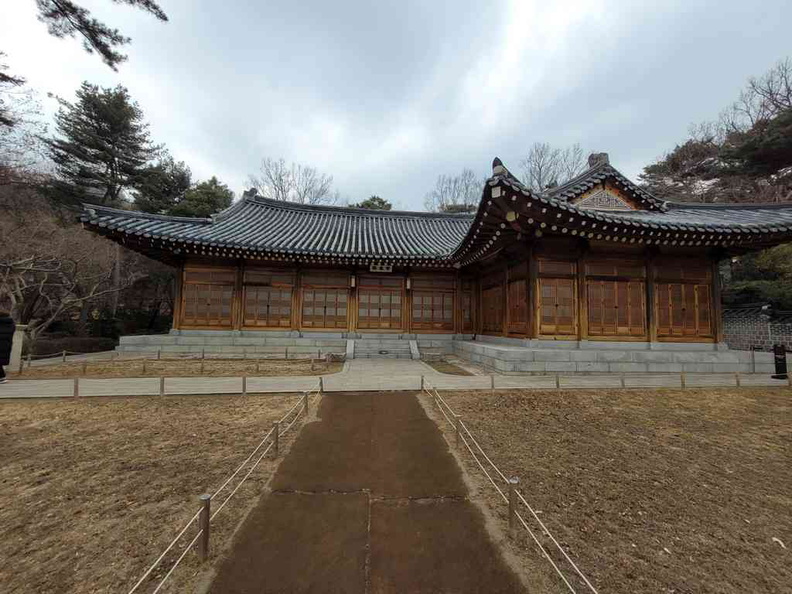
Here, within the gardens, you can find two buildings, the Chunchugwan Spring and autumn Hall and Sangchunjae houses. These are traditional huts and probably a good place to unwind in the forest. Also, main presidential office building, where the President works sits by this open field.
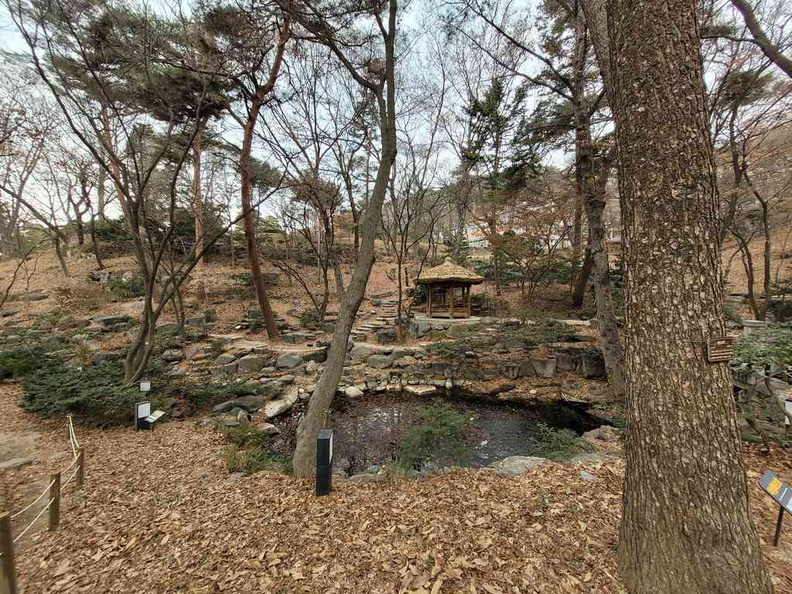
Presidential Residences
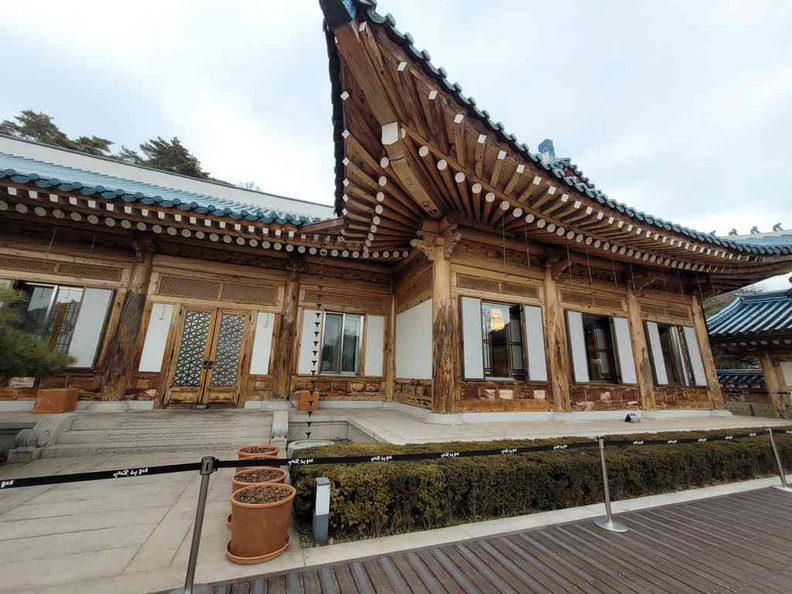
Additionally, a short steep hill climb past the presidential gardens and pond bring you up to the Presidential Residence. This single floored complex of connecting wooden houses sits at the top of a small hill with a road clearing. You can get to it at the top after a rather steep climb uphill east of the Blue house compound.
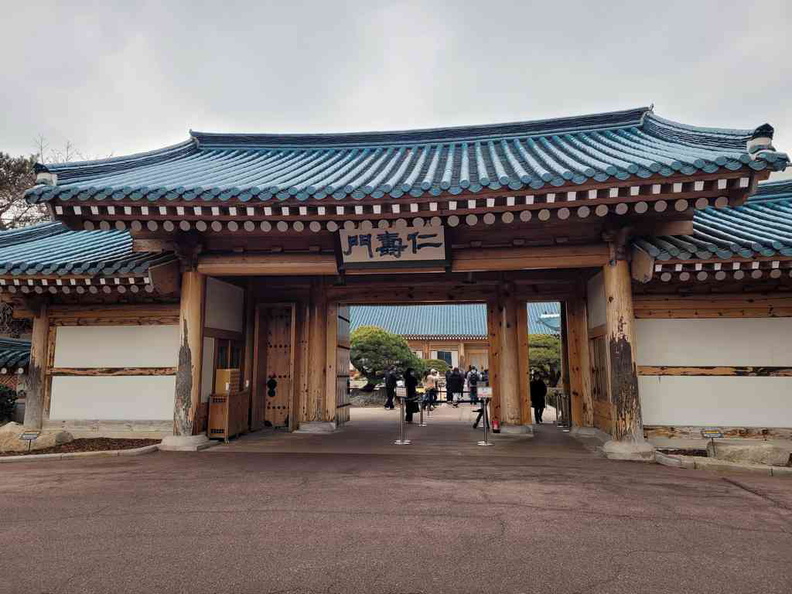
The entrance of the official residences has a roundabout here leading into a grand gated entrance. Within, the compound, you can find a garden and a housing a complex comprising of this small single L-shaped residential houses.
Still, besides it’s traditional look, the building is very modern with the luxuries you expect to serve as the president residence. Also, the interior within is adored with lit chandeliers and modern comforts. Talking about comforts, throughout the area, you can find guest amenities like cafes, seating as well as portable toilets you can use here.
Wrapping up, the grounds are opened daily 9am to 6pm (Closed every Tuesdays). It is one of a must-visit when you are in Seoul. This is on reasons being that a public opening may not be a permanent fixture. The venue is subjected to closure the moment the Korean president or successor chooses to reside back at the Blue house.
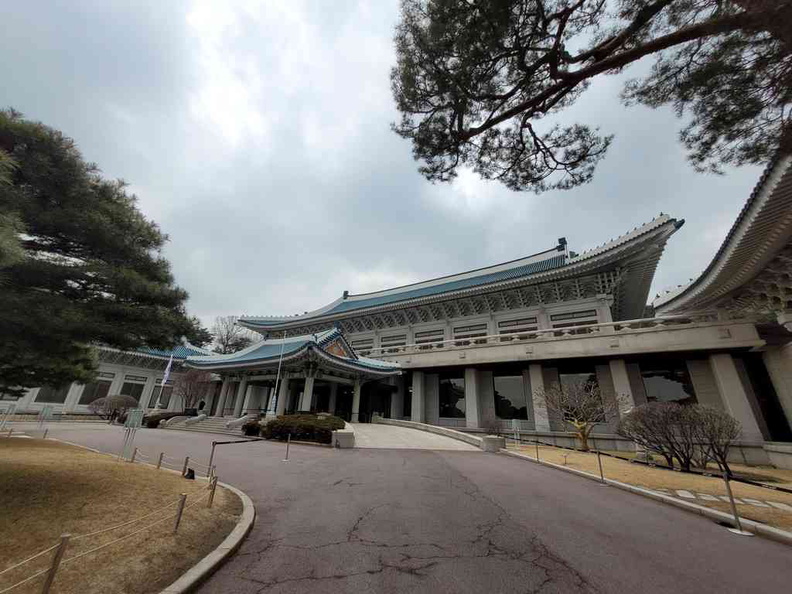
All in all, you are good for the blue house and a walk through the park and residences for about 2 hours tops. The Cheongwadae Blue House is a must-visit destination for anyone interested in the current working houses and unique insights of South Korea presidential workings.

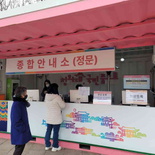
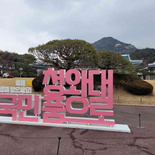
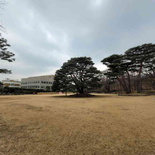
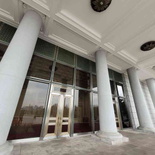
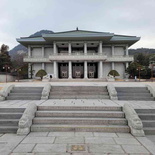
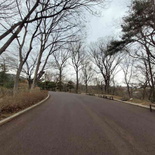
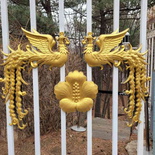
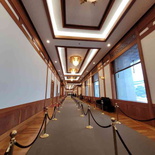
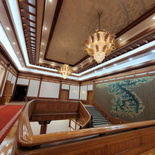
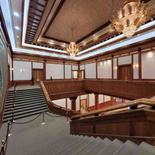
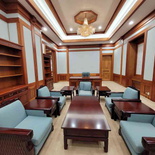
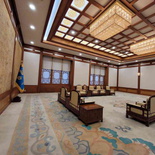
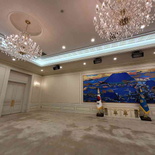
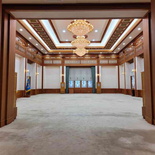
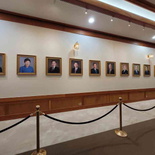
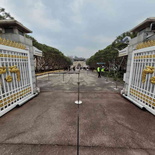
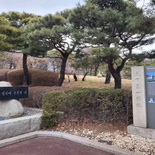
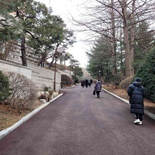
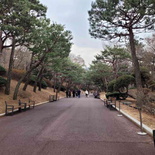
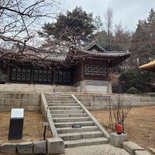
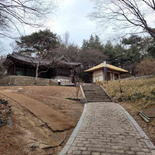
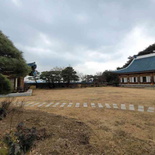
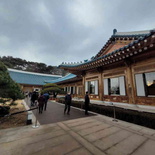
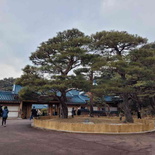
[…] Cheongwadae Blue house […]